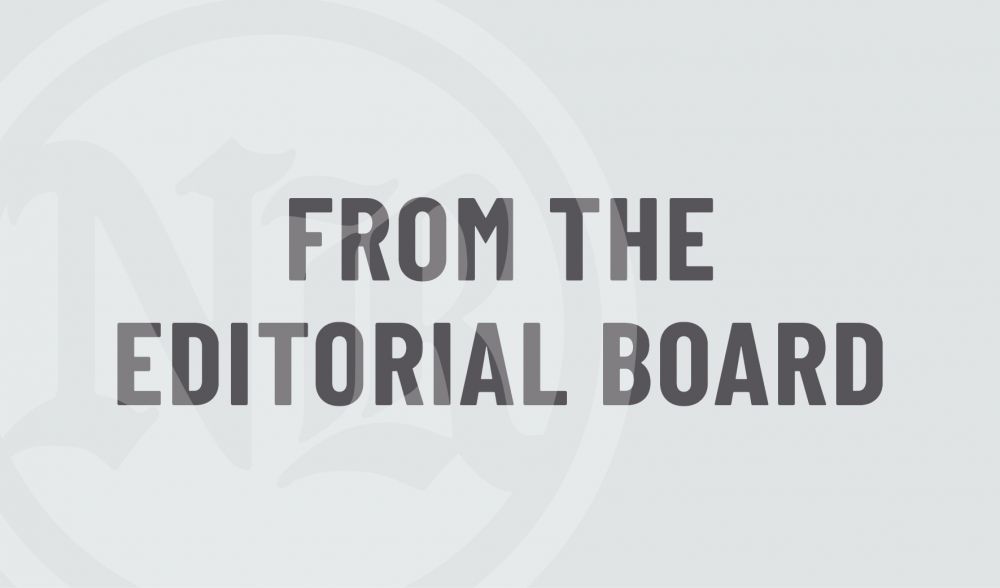Don't let highway finance fall victim to partisanship

When the Oregon Legislature opened its 2025 session on Jan. 21, crafting a new state transportation package promised to prove one of the most demanding tasks on its agenda. And with a statutorily imposed session closing date of June 29 looming, it’s coming to look ever more so.
Thanks to rising roadbuilding costs and declining gas tax revenues, Oregon is facing a transportation funding crisis of no small dimension. The increasing fuel efficiency of gas-powered cars, coupled with the proliferation of even more miserly electrics and hybrids, is serving to ratchet up the pressure with every passing year.
Although Republican legislative leaders remain in denial, at least in their public professions to their constituents, any reasonable solution will most certainly require additional revenue. The challenge lies in deciding how much from what sources, and then selling that politically.
The Legislature’s majority Democrats have been banking from the outset on coming up with a bipartisan solution. To that end, they included four Republicans on a committee created to tackle development of new transportation accountability measures, and tapped veteran Republican Bruce Starr, whose Senate District 12 encompasses McMinnville, to chair it.
The accountability committee is just now reaching the point of sharing its findings, but the outline of an overall package is already in place: 1) Increasing the gas tax from 40 cents a gallon to 60 cents over the next six years; 2) Raising the vehicle registration fee $66 and the title fee $90; 3) Assessing all motorists a new road usage fee.
The GOP’s leadership team has countered by proposing to forego new tax and fee charges by: 1) Robbing funds from bike, transit and safety programs to meet basic road and bridge needs; 2) Raiding the payroll tax to reimburse truckers for allegedly contributing disproportionately to Oregon’s road needs; 3) Removing oversight for major roadbuilding projects from the Oregon Department of Transportation and handing it over to a new, theoretically more efficient entity.
We view the GOP counter as entirely unpalatable and unworkable.
Further muddying the waters, the Joint Transportation Committee’s co-chairs just floated a proposal from the other end of the political spectrum. They urged the Legislature to augment transportation revenue via a new market-based emissions reduction program relying on cap-and-trade credits. However, Senate Co-Chair Chris Gorsek acknowledged that would have to await a future session, as there’s not enough time left this session.
We aren’t any more enamored of the two Democrats’ cap-and-trade embrace as we are of the Republican leadership’s disingenuous no-new-revenue stance.
Cap-and-trade is too complicated, controversial and unproven to win favor with the general public, let alone legislative Republicans. In fact, the GOP’s opposition to cap-and-trade runs so deep it twice triggered party walkouts in recent sessions.
None of the four Republicans serving on the bipartisan accountability committee signed off on their leadership’s hold-the-line at all costs position. In fact, none of the four were even consulted, suggesting party leaders were just doing some politicking for public consumption, while the real work is continuing behind the scenes.
We think some semblance of a united front on this pressing bipartisan issue would be highly desirable. It might even prove politically necessary, as two Democratic seats in the House are temporarily vacant right now, and not every member of the party can be counted on to come through in the crunch.
The fact is, Oregonians depend on a reliable road and bridge system in both their personal and professional lives. The responsibility for seeing they get it lies with the Legislature — all of the Legislature.
If truckers are currently paying more than their fair share, as they allege, adjustments can be made in the new package, with accountability committee input. Looting the payroll tax to make them whole is not a responsible option.







Comments
David S. Wall
The Editorial was a tad bit economical as to the cost Project Labor Agreements (PLA) have on road building projects.
Governor Kotek hoisted PLAs on every State Funded road project allegedly costing all road-building projects up to 20% more than budgeted.
The Editorial did not mention the Yamhill County By-Pass road-building project.
David S. Wall
CubFan
Raising the gas tax to 60 cents per gallon would put Oregon at 3rd highest in the US, and would put the entire burden of this tax on gasoline powered vehicles. Electric vehicles are beneficiaries of the road improvements, yet they seem to be excluded from this high tax. Why?
Also, can the NR elaborate on the "new road usage fee" mentioned in the 5th paragraph?